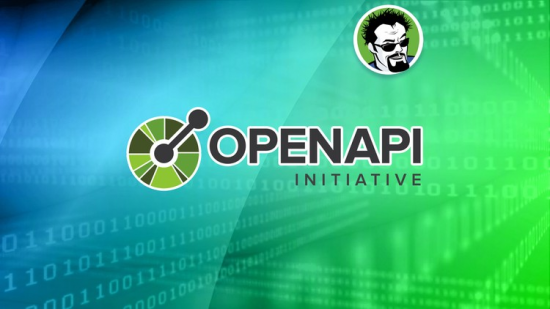
BestSeller| h264, yuv420p, 1280×720 |ENGLISH,aac, 44100 Hz, 2 channels, s16 | 4h 55mn | 1.8 GB
Instructor: John Thompson
Master OpenAPI (formerly Swagger) to Create Specifications for Your APIs
Master OpenAPI (formerly Swagger) to Create Specifications for Your APIs
What you’ll learn
Learn to define APIs using OpenAPI Specifications
Create awesome API Documentation with Swagger UI
Edit OpenAPI Specifications in Swagger Hub
Requirements
Be able to edit text files
Knowledge of RESTful APIs and JSON helpful
Description
OpenAPI 3.0 is the leading tool for the documentation of APIs.
Formerly known as Swagger, OpenAPI has a long and established history. In 2010, Swagger started as an open source specification for designing and documenting RESTful APIs.
In 2015, the Swagger project was acquired by SmartBear Software. The Swagger Specification was donated to the Linux foundation and renamed the OpenAPI.
The OpenAPI specification is the cornerstone of a thriving open source community. Simply perform a search for OpenAPI tools and you will find projects for converters, documentation, validators, editors, mock servers, testing tools and much much more!
From the OpenAPI specification, you can generate client side source code for over 50 languages. You can generate server side code for over 40 different languages.
All of these open source contributes start with the OpenAPI specification, which we explore in depth in this course.
You start off the course with learning about what is an API, a review of the HTTP protocol and how it is used in respect to RESTFul APIs.
Then we start looking at OpenAPI and how it applies to documenting RESTFul APIs.
We then start writing an OpenAPI specification using Swagger Hub.
Swagger Hub is a free, easy to use on-line editor for Swagger and OpenAPI specifications.
You will get to create a complete OpenAPI specification for a RESTful web service.
Step by step, you learn how to:
Edit a OpenAPI specification in Swagger Hub
Define a OpenAPI specification in YAML
Add developer information
Add server information
Define an API path
Define an API operation
Create robust objects with JSON schema constraints
Improve the quality of your specification with re-useable components.
Define query parameters
Define path parameters
Define GET, PUT, POST, and DELETE operations
Create API security schemes
Generate source code with OpenAPI Code Gen
Use ReDoc to generate robust API documentation
Use Apache Maven to generate code with OpenAPI Code Gen
This course has numerous assignments and hands on examples to get you comfortable writing OpenAPI specifications.
Enroll today and see how easy it is to use OpenAPI for your RESTFul APIs!
Who this course is for:
Anyone who needs to use OpenAPI specifications for APIs
Developers who need to document their APIs
Business Analysts responsible for API specifications
Password/解压密码-0daydown
Download rapidgator
https://rg.to/file/c9522641edeabbe3a27f58e7305cbe29/openapi-beginner-to-guru.part1.rar.html
https://rg.to/file/f1713d9b0e4fd90d2b935f4610902efe/openapi-beginner-to-guru.part2.rar.html
https://rg.to/file/25b3579e0d8d1cca1bdeeb1b472b7f37/openapi-beginner-to-guru.part3.rar.html
Download nitroflare
https://nitroflare.com/view/EA2A020FDD5657E/openapi-beginner-to-guru.part1.rar
https://nitroflare.com/view/99F16E3903109D2/openapi-beginner-to-guru.part2.rar
https://nitroflare.com/view/D4B62DE9E7ED0E1/openapi-beginner-to-guru.part3.rar
Download 百度云
你是VIP 1个月(1 month)赞助会员,
转载请注明:0daytown » OpenAPI: Beginner to Guru